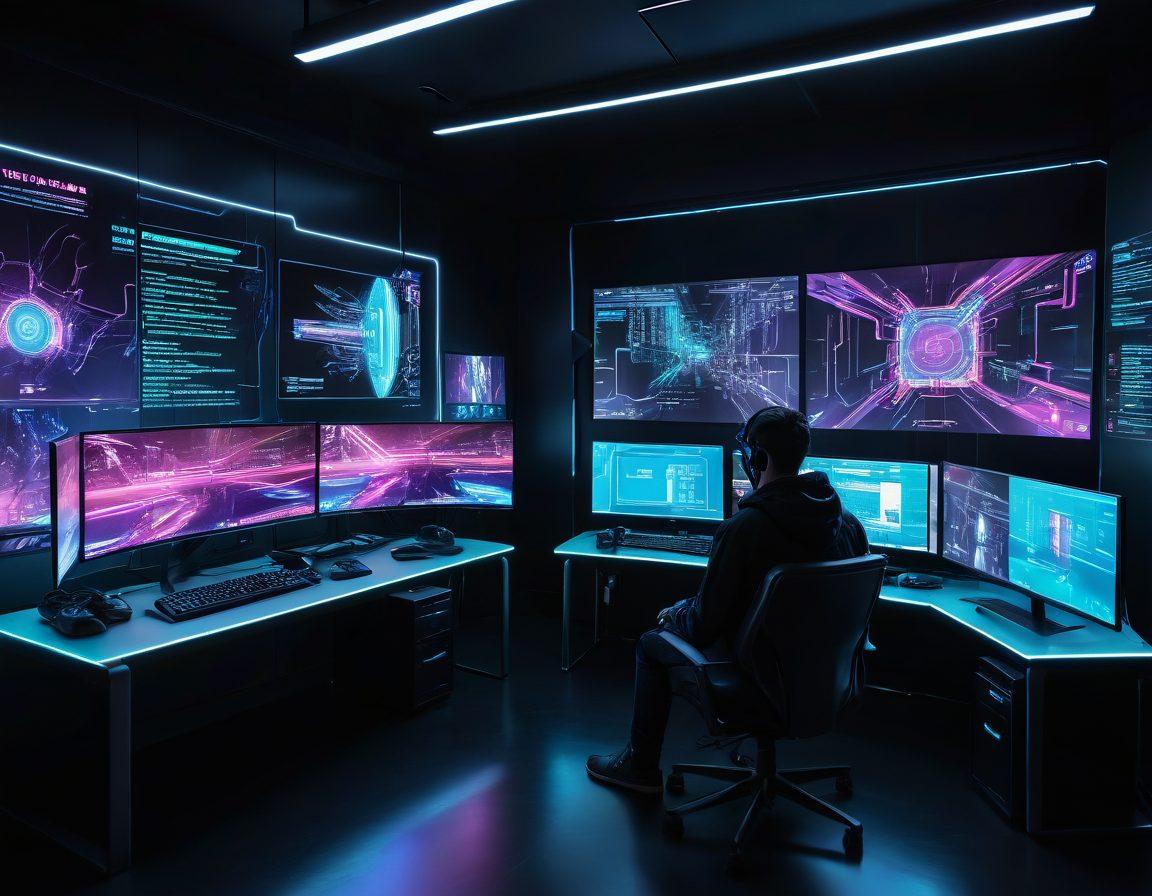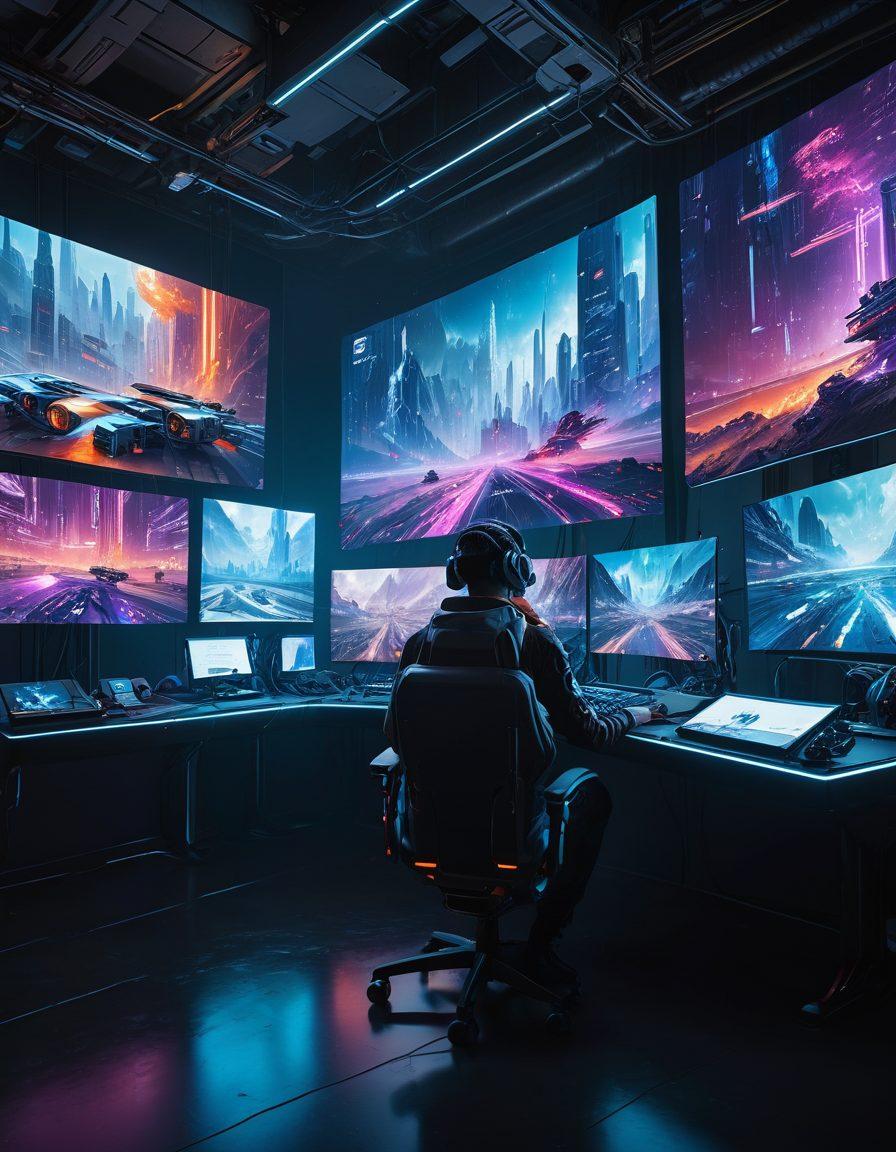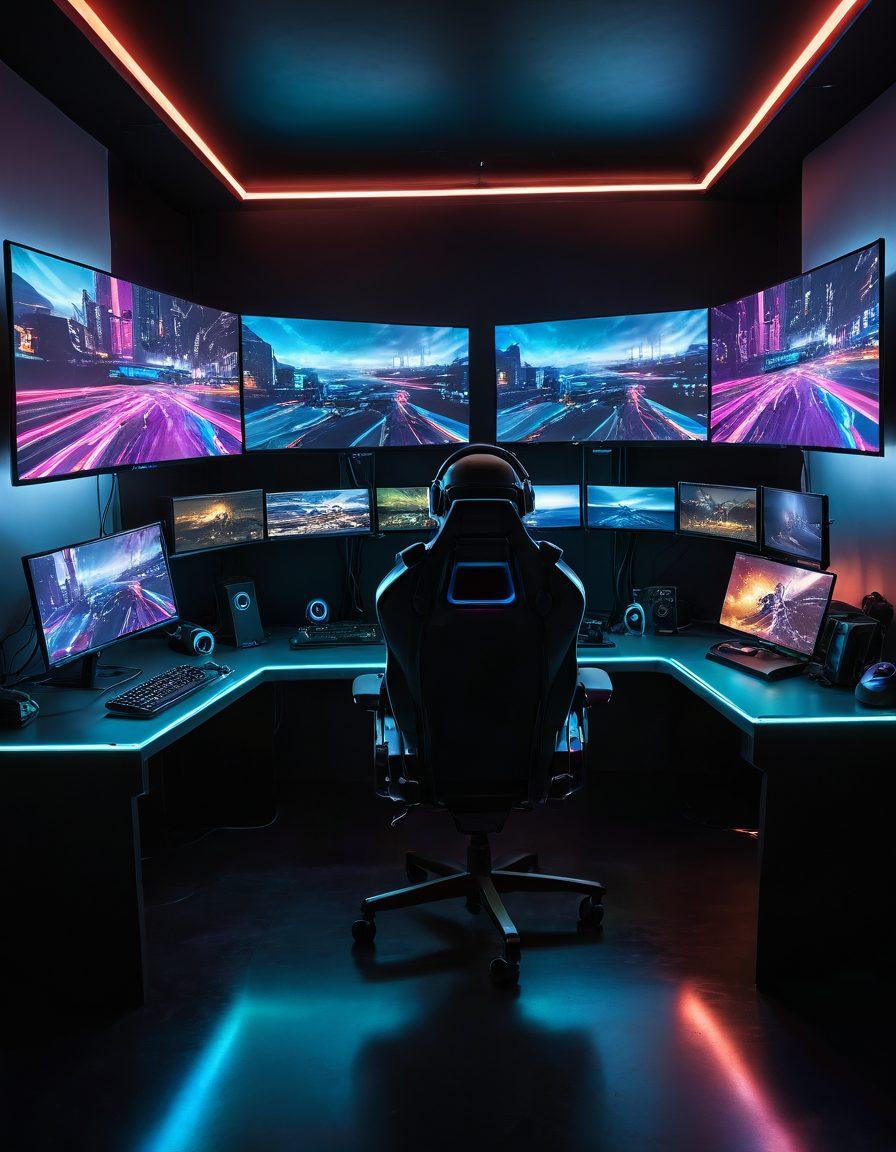Unlocking the Future of Gaming: Mastering Emulation and Virtualization in Software Development
In the ever-evolving world of gaming, one phrase has been gaining traction among developers and tech enthusiasts alike: emulation. This powerful technology is not just a tool but a catalyst revolutionizing game development. Imagine playing a console-specific title on your mobile device without any hassle! As we delve deeper into the world of software applications, it's essential to understand how emulation and virtualization can redefine our approach to the gaming technology trends of today and tomorrow.
Picture this: you’re a game developer staring at mountains of code, dreaming of bringing riveting experiences to countless players. What if I told you that **gaming emulators** could be your X-factor, enabling you to test your creations across various platforms effortlessly? Emulation allows developers to simulate the hardware of legacy consoles and devices, smoothly integrating software tutorials and game tutorials into their workflows. It’s akin to having a magical bridge that connects every gaming genre with a single system emulator, unlocking a treasure trove of potential.
And what about virtualization? The concept of **device virtualization** is not only reserved for businesses but also plays a crucial role in software engineering. Virtual machines create an environment where you can experiment safely, ensuring that your mobile applications run without a hitch. Think of it as a protective cocoon: you can test your applications, tweak your code, and observe the results instantaneously, all while avoiding the risk of damaging your core software applications. Have you ever encountered a bug that you didn't notice until it was too late? Virtualization is your ally in this arena, reducing that risk significantly and enhancing efficiency.
Moreover, as digital technology develops, the merging of emulation and virtualization paves the way for some exciting programming guides. How can you apply these technologies to enhance your game development process? Consider creating game tutorials that incorporate both emulation and virtualization, simplifying complex concepts for aspiring developers. Sharing these insights not only furthers the community but positions you as a thought leader in a competitive landscape. The question is, how can you leverage this knowledge for your unique projects?
Lastly, embracing the combination of emulation and virtualization in your game development journey is not merely about keeping up with the latest technology trends. It's about breaking barriers and forging connections across platforms, creating games that resonate with players regardless of their devices. As the lines between consoles, PCs, and mobile applications blur, being at the forefront of this technological evolution is not just smart — it's essential. Ready to explore the world of virtual gaming and take your projects to the next level? The future of game development is not just exciting; it’s here, and you’re invited to join!
Future-Ready Gaming: Essential Tutorials for Software Engineers
In the ever-evolving world of gaming technology, the future appears to be bright, with a myriad of possibilities waiting just around the corner. For software engineers, the opportunity to harness the power of emulation and virtualization is not just a trend—it's a thrilling frontier. Whether you’re developing mobile applications or diving deep into game development, mastering these cutting-edge strategies can elevate your career and enhance your projects. But what truly sets apart those who thrive in this digital landscape? It’s all about being future-ready.
Imagine being able to play your favorite classic console game on your high-tech laptop, seamlessly. This magic is made possible through gaming emulators—programs that mimic older hardware and allow you to play games on modern devices. As you explore the world of device virtualization, you may find yourself thinking: How can I utilize emulation in my software applications? The answer lies in understanding system emulators and tapping into the wealth of knowledge through software tutorials that offer step-by-step guidance on setting up and using these remarkable tools.
The technology trends influencing digital technology today are nothing short of revolutionary. From virtual machines to device emulation, the landscape has transformed how software engineering is executed. As a software engineer, have you considered how these advancements can improve your application development processes? By embracing virtual gaming environments, you can simulate various user experiences and test your software applications in innovative ways. It adds layers of reliability and performance to your final product, ensuring a smoother journey for gamers.
As you delve deeper into game tutorials and programming guides, you might come across fascinating concepts that push your creative boundaries. Have you ever thought about how much a well-structured tutorial content can inspire you? Great tutorials not only provide information—they infuse motivation. They can transform complex topics, like device virtualization and gaming technology, into compelling stories that help you grasp the core principles quickly while igniting your passion for creating something extraordinary.
So, what’s next in your software engineering journey? There’s a world of possibilities ahead, filled with interactive experiences waiting to be crafted. As you explore emulation and virtualization, remember to create your unique narrative. Use what you learn to craft engaging mobile applications and computer applications that resonate with users. Imagine the impact you can have as you bridge the gap between advanced technology and gaming. With dedication, creativity, and the right resources, the future of gaming is not just unfolding—it’s yours for the taking.
Navigating the Tech Trends: Mastering Virtual Machines for Gaming Success
As we step into an era where the boundaries of digital technology continue to blur, the landscape of gaming is transforming in ways we never imagined. The rise of virtual machines and emulation is paving the way for innovative gaming experiences that cater to both developers and players alike. With the advent of software applications that leverage these technologies, we find ourselves at the forefront of a revolution. Are you ready to navigate this exciting journey and master virtual machines for gaming success?
Emulation has become a cornerstone of modern game development. It enables developers to recreate gaming environments, allowing them to test applications across various platforms without needing the physical hardware. Imagine being able to run a console game on your PC or mobile device! This is the beauty of a gaming emulator. They are more than just tools; they are the gateways to exploring the past while shaping the future of gaming. Through system emulators, developers can also create robust game tutorials and programming guides that simplify the learning curve for new developers.
Let's consider the implications of device virtualization in this vibrant gaming tech scene. Developers can harness this powerful technology to build applications that run seamlessly across different devices. What if you wanted to create a mobile application that mimics the gameplay of a beloved retro console game? With the right game development knowledge and virtual machines, this dream becomes a reality. Furthermore, as the demand for cross-platform gaming grows, being proficient in device emulation will serve as a significant advantage in application development.
As we delve deeper into technology trends, it's fascinating to see how the gaming sphere is expanding. Virtual gaming can now reach audiences beyond the traditional screen, offering experiences in augmented reality and mixed reality. What about the potential for using virtual machines to create environments that allow players to collaborate and compete in ways we have never seen before? This evolution emphasizes the need for comprehensive software tutorials and resources that break down complex topics into digestible content, enabling aspiring developers to hone their skills.
In summary, mastering virtual machines is not just an option; it’s a necessity for those looking to succeed in the future of game development. Embrace the knowledge of device virtualization and how it impacts gaming technology. As you embark on this journey, remember that learning never stops. The more you immerse yourself in game tutorials, programming guides, and software engineering principles, the more equipped you will be to innovate within this thrilling realm. So, are you ready to unlock the potential of emulation and the new age of gaming?


